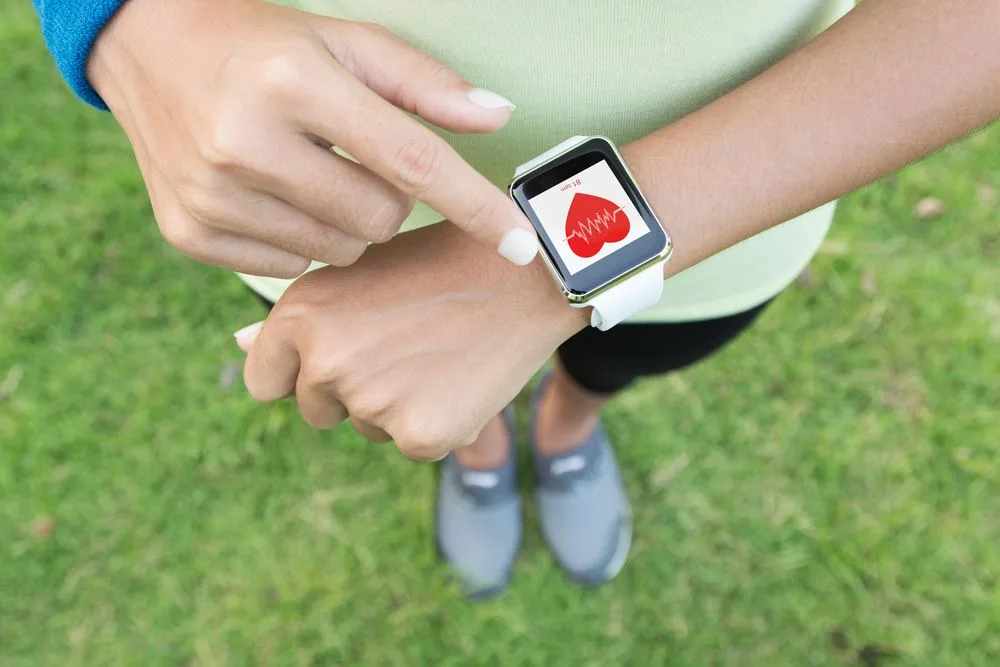The heart is the center of your cardiovascular system and is responsible for vital bodily functions that keep us alive. From transporting oxygen to the functioning of your immune system and pumping blood, this muscle is one of the body’s most essential organs. However it is sometimes the most neglected.
Heart health is extremely important, especially when we consider that cardiovascular diseases kill more adults than any other cause (According to the CDC, one person dies every 34 seconds in the US from cardiovascular disease).
Cardiovascular Disease: Still the biggest cause of death
Cardiovascular disease consists of conditions that affect the structures or functions of your heart or blood vessels. These include coronary artery disease, high blood pressure, cardiac arrest, arrhythmia, and stroke amongst others. With 80% of strokes and heart diseases being preventable, the one thing we can do to ensure our heart health is intact is to prioritize exercise.
Frequent exercise has been linked to a decrease in cardiovascular mortality along with the risk of developing cardiovascular disease, and according to a recent study, the time you choose to exercise might have an impact on your cardiovascular health too.
Study looked at women and men’s heart health and exercise time of day
The study aimed to prove that there is a link between morning exercise and lower cardiovascular disease risk. Over 86 000 individuals in the UK Biobank were studied. Participants were all between the ages of 42-78. They were asked to wear accelerometers to record their physical activity over a period of 7 days.

H_Ko/Shutterstock
Over a six-year follow-up period, the effects of exercise time of day on cardiovascular disease risk were studied. It was observed that those who exercised at 11A.M were 16% less likely to develop Coronary Artery Disease and 17% less likely to have any kind of stroke.
Those who exercised in the early morning (8A.M) were shown to lower their Coronary Artery Disease risk by 11%, with women showing a reduced risk of 22%.
To further supplement this, another 3-month exercise intervention study was conducted. It showed that in a group of healthy-weight and middle-aged women, exercising in the morning in comparison to exercising in the evening yielded greater benefits, including reduced systolic and diastolic blood pressure. High blood pressure has been shown to be a major risk factor for cardiovascular disease, so this shows yet another link between morning exercise and cardiovascular disease risk.
The missing figures
So what about men? Does exercising in the morning bring about the same benefits for them?
Unfortunately, not. According to the first study mentioned, there was no significant benefit to exercising in the morning for men.
Dr. Albalak gives insight into this by saying: “One of the possible explanations (for this) could be that the etiology of cardiovascular disease is different in men and women.”
Type 2 Diabetes: The reason to avoid morning exercises
However, one thing that is certain and scientifically proven, is that men with Type 2 Diabetes should avoid exercising in the morning.
According to another study, men with diabetes who exercise in the morning are at a greater risk of suffering from a heart attack. Over 2000 patients with Type 2 Diabetes and who were also obese or overweight were analyzed.
Similar to the initial study, the participants wore accelerometer devices on their waists. The devices served the purpose of measuring the time and type of physical activity being done. It was proven that irrespective of the amount or intensity of weekly exercise, those with Type 2 Diabetes showed a higher risk of developing coronary heart disease, as opposed to those who exercised around midday and displayed lower cardio-respiratory fitness levels. However, there was no association observed between the two in women.
What to do if you have Type 2 Diabetes
Now, is this to say that men with Type 2 Diabetes should avoid exercising? Of course not.
In fact, exercising can be beneficial. Patrick Schrauwen, Ph.D. is a professor of metabolic aspects of Type 2 Diabetes at Maastricht University in the Netherlands. He says: “Exercise is the cornerstone for the prevention and treatment of metabolic diseases like diabetes.”
Research has found that training in the afternoon resulted in beneficial effects on peripheral insulin sensitivity, fasting plasma glucose levels, and exercise performance. So exercising is not only safe but also essential and beneficial.
Why do men and women have different optimum workout times?
The information above tells us that men and women have different optimum workout times during the day. A recent study conducted by scientists from Skidmore College, Arizona State University, and California State University shows that women burn more fat and display improved blood pressure levels when they exercise in the morning. Men, on the other hand, showed an increase in upper body muscle strength and endurance by exercising in the evening.
Megan Johnson McCullough, a National Academy of Sports Medicine trainer and professional bodybuilder, attributes these different optimum workout times to hormones and sleep patterns.
Women spend more time in deep sleep and less time in the lightest sleep phase, compared to men. This, therefore, suggests that “women are more alert and awake in the morning compared to men.”

Photo by Karsten Winegeart on Unsplash
This would explain the optimum workout time being in the morning. This is due to the body being more alert during these early hours, unlike men, whose bodies still need to “wake up” throughout the day due to their sleeping patterns.
The best exercises for heart health
According to health experts, it is advised that we engage in aerobic exercise and resistance training. This will ensure that our heart health is prioritized.
- Aerobic exercise consists of brisk walking, running, and jumping rope. It helps improve circulation, which leads to lowered blood pressure and heart rate.
- Resistance training refers to strength work which consists of squats, push-ups, and weights. It helps to raise HDL (good) cholesterol and lower LDL (bad) cholesterol.
Bottom line
Exercising is the perfect way to ensure our longevity because it serves more purposes than helping us look good. From improving our brain health to ensuring that our cardiovascular health is intact, exercise shouldn’t be a rare occurrence. Rather, it should be a consistent part of our lifestyles, because it truly is medicine.
MAIN IMAGE CREDIT: blackzheep/shutterstock
Reference
- Fiuza-Luces, C., Santos-Lozano, A., Joyner, M., Carrera-Bastos, P., Picazo, O., Zugaza, J.L., Izquierdo, M., Ruilope, L.M. and Lucia, A., 2018. Exercise benefits in cardiovascular disease: beyond attenuation of traditional risk factors. Nature Reviews Cardiology, 15(12), pp.731-743.
- Tian, D. and Meng, J., 2019. Exercise for prevention and relief of cardiovascular disease: prognoses, mechanisms, and approaches. Oxidative Medicine and Cellular Longevity, 2019.
- Lee, D.C., Sui, X., Church, T.S., Lee, I.M. and Blair, S.N., 2009. Associations of cardiorespiratory fitness and obesity with risks of impaired fasting glucose and type 2 diabetes in men. Diabetes care, 32(2), pp.257-262.



![women [longevity live]](https://longevitylive.com/wp-content/uploads/2020/01/photo-of-women-walking-down-the-street-1116984-100x100.jpg)










